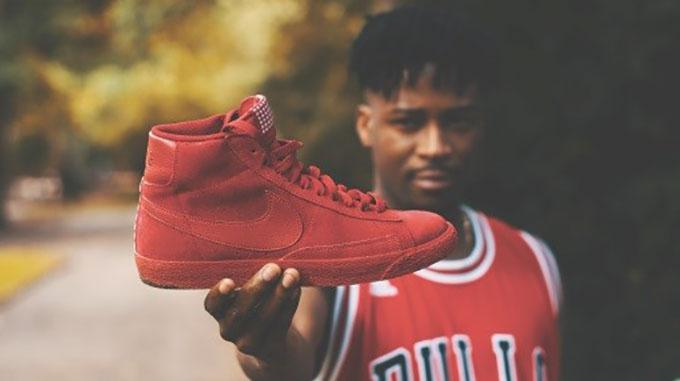Search the latest and greatest job opportunities in sport

It’s no longer enough for sports brands to produce the best equipment in order to capture a market – these days consumers want to connect with brands who share their ‘lifestyle’. Consumer lifestyle refers to details such as identity, community, ideology, and the overall values of the consumer. During a course dedicated to Consumer Lifestyle, students of the MSc in Sports Industry Management learned how, in the current market, brands need to pioneer a lifestyle that resonates with their customers in order to be successful. Not only did they learn about this topic in class with Professor Joonas Rokka but they also got to apply their knowledge in one of their business cases with Saint Raphaël Var Handball club .
The importance of consumer lifestyle:
If consumers have to choose between two brands offering products of an equal quality, they are bound to use something to differentiate between them. This is where lifestyle fits in, and it’s increasingly important in the competitive sports industry. Passion and identity plays a key role in sports, so it’s no surprise that consumers can be deeply attached to brands.
Students of the MSc in Sports Industry Management students have been analysing recent trends and their development in order to evaluate how brands can stay relevant. Professor Joonas Rokka, lecturer in Consumer Lifestyle at em lyon business school explains: “in the programme we teach how brands can be sensitive to cultural and social changes in society and actively express their values and beliefs”. Students are learning about this new kind of branding model which will provide them with the necessary tools to distinguish consumers’ identity, culture and society – or consumer lifestyle – and how to put this into practice when working with sports brands.

The importance of lifestyle has led brands to be sensitive to and address potent social-cultural tendencies. For example adidas and Nike, two brands with which students have had the opportunity to interact and work with in the case of Nike, have almost entirely abandoned promoting their actual products through advertising. Instead they focus on resonating with their customers through appealing to their lifestyle: they centre their adverts on fostering a sense of identity, community and on what matters to their customers. Such brands gain their value via buttressing identity rather than through simple product-feature associations, Rokka argues.
Taking a stance on issues
However, when brands embrace themselves with certain values, consumers can react strongly if they feel there is inauthenticity or hypocrisy. A recent example of this is the backlash faced by Under Amour after its CEO Kevin Plank praised controversial politician Donald Trump. Social media called for a boycott of the brand and Under Amour was quick to release a statement clarifying Plank’s comments. Under Armour also came under fire from their endorsers, Misty Copeland and Stephen Curry, who criticised Plank’s approval of Trump. Partnering with influencers and celebrities is a way brands can appeal to consumers, however as we see with Under Armour, brands are not able to control the opinions of their influencers.
Other brands, notably Nike and adidas, have used recent political events to strengthen their lifestyle appeal, by releasing adverts praising cultural diversity. This social and political positioning is becoming more and more important, and as Quartz states: “as brands risk backlash from their customers, not taking a stance may soon not be an option”.
For top sports brands, product quality is a given. So in order to inspire loyalty in their customers – and thus long-term presence in the market – brands need to tap into consumer lifestyle and truly reflect their customers.

Part of the Saint Raphaël Var Handball club current challenges are linked to creating a stronger brand image by reinforcing their identity to final consumers and showcasing a new branding model. So when students of the MSc in Sports Industry Management presented their findings to the top management of the SRVHB they gave aspiring insights and recommendations as to how the handball club could strengthen its relationship with the consumers and therefore enhance its position in the market.
Identity is felt strongly in the sports industry – the teams you support, the sports you play, as well as your values and beliefs – these aspects all add up to consumer lifestyle. If brands find a way to resonate on a deeper level with their target market, they will create a loyal and committed consumer base. As a one of the hotest topics in the sports industry today, it was essential for the students to learn about and get the chance to apply their knowledge through a tangible business case.
Follow the programme on Facebook (@MScInSports) and Twitter (@EMLYONMScSports)
- Keep up with the programme community on the blog
- Discover the MSc in Sports Industry Management website
Through its MSc in Sports Industry Management , emlyon business school takes into account the necessary components that will help you boost your career in sports management.
Search the latest and greatest job opportunities in sport